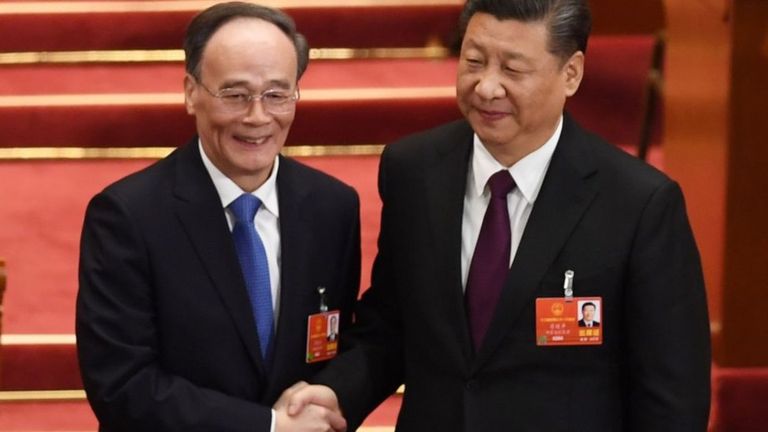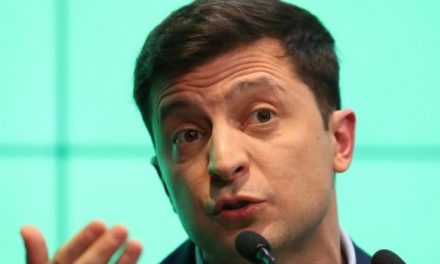UPDATE
18 March 2018
Supervision Minister Yang Xiaodu, was elected head of the National Supervision Commission (NSC). He is also a deputy head of the party’s own graft-fighting Central Commission for Discipline Inspection (CCDI). Zhao Leji, remains head of the CCDI. That body will remain and will share many of its functions with the new commission. Zhao is a member of the party’s elite seven-man Standing Committee.
Parliament announced on Sunday the re-elections of Li Keqiang as premier and Zhou Qiang as chief justice.
The new supervision law will give detentions the cover of legality, while torture and rights abuses will continue as in the old system. Xi’s anti-graft campaign has made use of a secretive and controversial residential detention, which is outside the law. But Xi has pledged to reform the detention system under the new supervision commission. On Tuesday, parliament will formally pass the law that will give the legal framework for the new commission. Constitution was amended earlier to accommodate these changes. Reuters reported.
Mr Yang is the deputy head of the CCDI, which is headed by Zhao Leji. This means that Yang is subordinate to Mr Zhao, who heads CCDI. Besides Yang is not a member of the standing committee like Zhao. This means that while the NSC will be the umbrella agency under which the CCDI operates, the latter will have significant autonomy and decision-making authority. This is in line with the party policy that all authority radiates from the party.
17 March 2018
Today, China’s parliament unanimously elected Xi Jinping as president for the second term. China’s once powerful anti-corruption chief, Wang Qishan will turn 70 years old this July. He was elected as vice-president. Xi received a standing ovation after winning all 2,970 votes. Only one delegate voted against Wang’s appointment, with 2,969 in favour. In 2013, Xi had received 2,952 votes, with one against and three abstentions.
In the past, vice presidency in China has been largely a ceremonial post. This is set to change now. Wang is not a member of powerful Politburo Standing Committee. In the past all vice presidents were members of the Politburo Standing Committee. This is the first time an ordinary party member has become a vice president since the early 1990s. This shows how much confidence Xi has on Wang. Wang is expected to be in office for at least a decade, now that the two-term limit on presidency and vice-presidency has been removed.
Wang and Xi were friends in their youth. They shared a bunk when they were both performing manual labour in Shaanxi province during the Cultural Revolution, and Wang lent Xi books related to economics. Wang also had dealings with Xi during the latter’s time as a regional official in Fujian.
Wang Qishan came close to Xi as he spearheaded the battle on graft since the 18th party congress. In the anti-corruption drive more than one million party members were investigated. This won the praise from the public for weeding out low-level graft and eliminating Xi’s political rivals.
Analysts believe that Xi’s bold move was to select a person to handle U.S.-China relationship and an ally to help him in consolidating his power. President Donald Trump has said he wants China to slash $100 billion off Washington’s trade deficit with China. Xi wants a tough negotiator to deal with U.S. Wang has a long track record of handling tough situations both locally and internationally. He previously was China’s top economic representative in high-level security and economic talks with Washington, during the administrations of both former presidents George W. Bush and Barack Obama. In Xi’s opinion, only Wang is capable of handling Trump’s tough trade representative, Robert Emmet Lighthizer.
Last month Beijing’s top diplomat Yang Jiechi and its most senior economic adviser Liu He both visited Washington, but they were not successful in persuading Trump from taking further action against China. There is no guarantee that Wang will succeed. Yet, Xi wanted someone else.
U.S. Secretary of the Treasury Henry Paulson said that Wang is “decisive and inquisitive” and “an avid historian, enjoys philosophical debates and has a wicked sense of humor.” Paulson writes, “He is a Chinese patriot, but he understands the U.S. and knows that each of our two countries benefits from the other’s economic success. And he is bold — he takes on challenges, does things that have never been done before and succeeds. Wang managed the largest bankruptcy restructuring in China’s history in 1998 and thereby prevented a banking crisis that could have crippled the country’s growth.” – Wang Qishan By Henry M. Paulson Jr
But Mr. Wang is no economic liberal. “You were my teacher,” Mr. Wang told Mr. Paulson, the former Treasury secretary recalled in his memoir. “We aren’t sure we should be learning from you anymore.”















